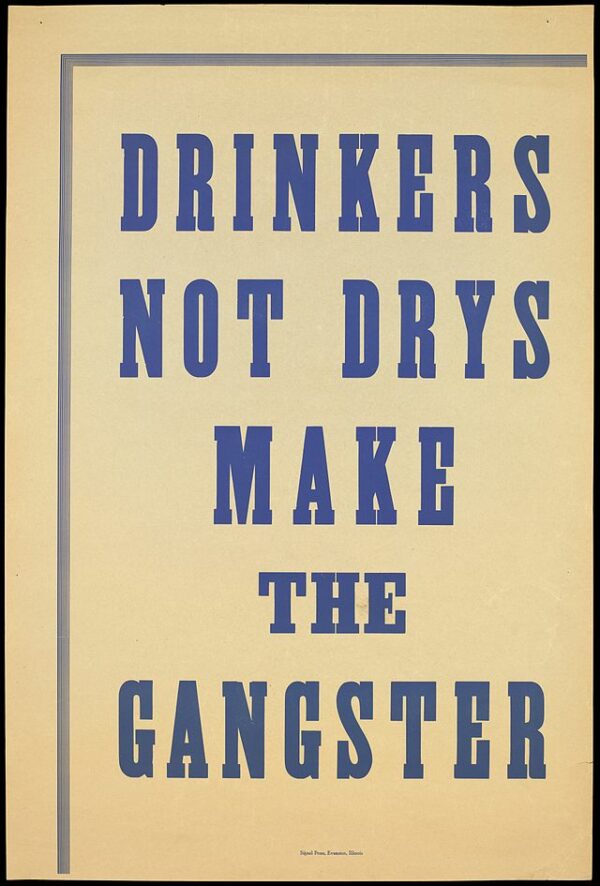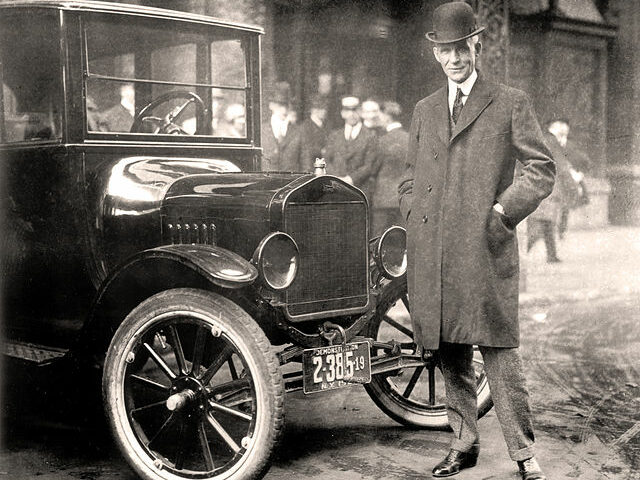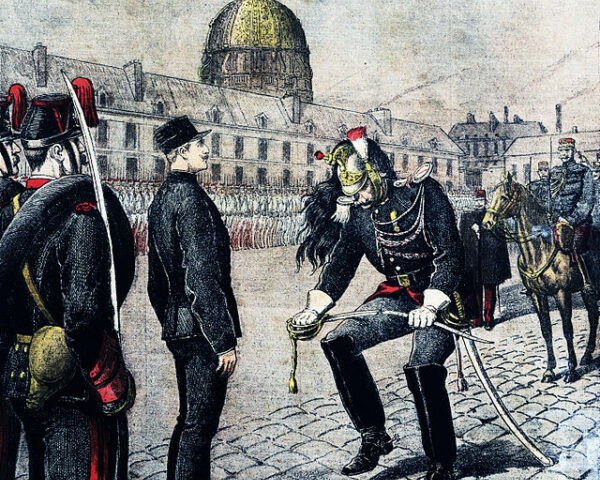On January 17, 1920, Americas beer taps went dry. On that day, The Volstead Act, officially known as the National Prohibition Act, passed by Congress a few months earlier, went into effect. The new law provided for the enforcement of the 18th Amendment to the U.S. Constitution, which prohibited the manufacture, sale, and transportation of intoxicating liquors. Named after Andrew Volstead, Chairman of the House Judiciary Committee, who managed the legislation, the Act was intended to eliminate alcohol consumption and, by extension, the social problems associated with it.
The key driving force behind the prohibition movement was the belief that alcohol consumption caused major social problems, including crime, poverty, and family disintegration. Advocates of Prohibition, often associated with the Temperance Movement, argued that banning the production, sale, and transportation of alcohol would lead to a more morally upright and socially responsible society.
The Volstead Act defined “intoxicating liquors” as any beverage containing more than 0.5% alcohol by volume, effectively outlawing beer, wine, and spirits. It also set forth the legal framework for the enforcement of Prohibition, including the creation of a special unit within the Treasury Department known as the Prohibition Bureau. This bureau was tasked with investigating and shutting down illegal operations, such as speakeasies and bootlegging networks. Despite these efforts, the Act faced significant challenges in enforcement due to widespread opposition and the ingenuity of those who sought to circumvent the law.
One of the unintended consequences of the Volstead Act was the rise of organized crime. As legitimate avenues for alcohol production and distribution were closed, criminal enterprises stepped in to fill the void. Bootleggers and rum-runners smuggled liquor from Canada and the Caribbean, while others produced “moonshine” or homemade alcohol. The illegal liquor trade became a lucrative business, leading to an increase in violence and corruption as rival gangs fought for control of the market.
The social impact of the Volstead Act was complex and far-reaching. While some Americans supported Prohibition and believed it would lead to a more moral and orderly society, others resented the infringement on personal freedoms and the rise in criminal activity. The Act also had economic implications, as the government lost significant tax revenue from the legal alcohol industry, and many workers in brewing, distilling, and related trades lost their jobs. Additionally, the legislation disproportionately affected immigrant communities and working-class neighborhoods, where saloons had served as important social centers.
Ultimately, the Volstead Act’s attempt to legislate morality proved to be largely ineffective and unpopular. After more than a decade of Prohibition, public sentiment shifted, and the 21st Amendment was ratified on December 5, 1933, repealing the 18th Amendment and ending national Prohibition and cheers across the nation.






